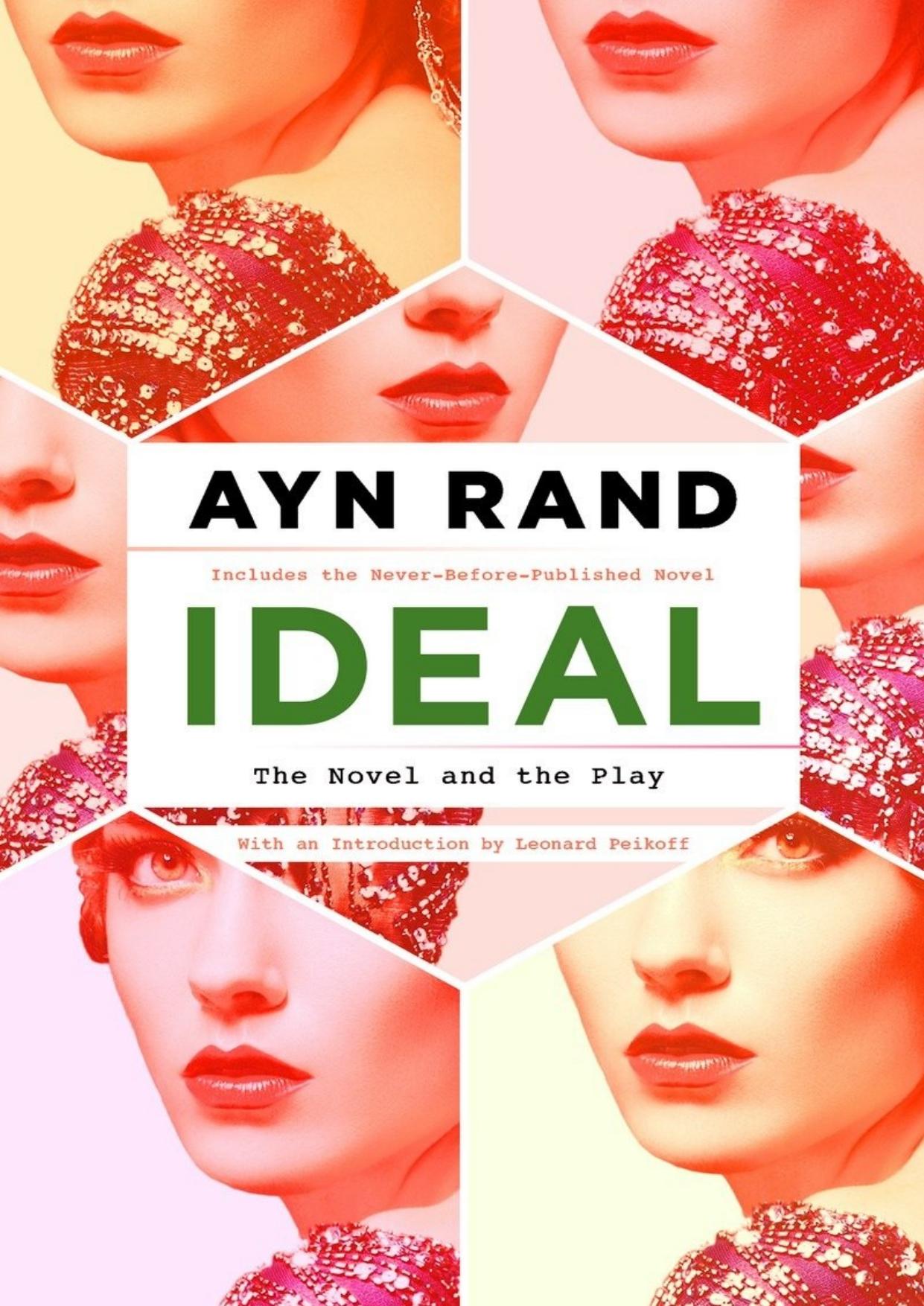Ideal by Ayn Rand

Author:Ayn Rand
Language: eng
Format: epub, mobi, pdf
Publisher: Penguin Publishing Group
Published: 2015-06-07T16:00:00+00:00
PART II
Ideal: The Play
Introduction to Ideal: The Play
Ideal was written in 1934, at a time when Ayn Rand had cause to be unhappy with the world. We the Living was being rejected by a succession of publishers for being “too intellectual” and too opposed to Soviet Russia (this was the time of America’s Red Decade); Night of January 16th had not yet found a producer; and Miss Rand’s meager savings were running out. The story was written originally as a novelette and then, probably within a year or two, was extensively revised and turned into a stage play. It has never been produced.
After the political themes of her first professional work, Ayn Rand now returns to the subject matter of her early stories: the role of values in men’s lives. The focus in this case, as in “Her Second Career,” is negative, but this time the treatment is not jovial; dominantly, it is sober and heartfelt. The issue now is men’s lack of integrity, their failure to act according to the ideals they espouse. The theme is the evil of divorcing ideals from life.
An acquaintance of Miss Rand’s, a conventional middle-aged woman, told her once that she worshiped a certain famous actress and would give her life to meet her. Miss Rand was dubious about the authenticity of the woman’s emotion, and this suggested a dramatic idea: a story in which a famous actress, so beautiful that she comes to represent to men the embodiment of their deepest ideals, actually enters the lives of her admirers. She comes in a context suggesting that she is in grave danger. Until this point, her worshipers have professed their reverence for her—in words, which cost them nothing. Now, however, she is no longer a distant dream, but a reality demanding action on their part, or betrayal.
“What do you dream of?” Kay Gonda, the actress, asks one of the characters, in the play’s thematic statement.
“Nothing,” he answers. “Of what account are dreams?”
“Of what account is life?”
“None. But who made it so?”
“Those who cannot dream.”
“No. Those who can only dream.”
In a journal entry written at the time (dated April 9, 1934), Miss Rand elaborates this viewpoint:
I believe—and I want to gather all the facts to illustrate this—that the worst curse on mankind is the ability to consider ideals as something quite abstract and detached from one’s everyday life. The ability of living and thinking quite differently, in other words eliminating thinking from your actual life. This applied not to deliberate and conscious hypocrites, but to those more dangerous and hopeless ones who, alone with themselves and to themselves, tolerate a complete break between their convictions and their lives, and still believe that they have convictions. To them—either their ideals or their lives are worthless—and usually both.
Such “dangerous and hopeless ones” may betray their ideal in the name of “social respectability” (the small businessman in this story) or in the name of the welfare of the masses (the Communist) or the will of God (the evangelist)
Download
This site does not store any files on its server. We only index and link to content provided by other sites. Please contact the content providers to delete copyright contents if any and email us, we'll remove relevant links or contents immediately.
The Secret History by Donna Tartt(16627)
The Social Justice Warrior Handbook by Lisa De Pasquale(11489)
Thirteen Reasons Why by Jay Asher(7788)
This Is How You Lose Her by Junot Diaz(5774)
Weapons of Math Destruction by Cathy O'Neil(5038)
Zero to One by Peter Thiel(4824)
The Myth of the Strong Leader by Archie Brown(4789)
Promise Me, Dad by Joe Biden(4449)
Beartown by Fredrik Backman(4419)
Stone's Rules by Roger Stone(4416)
How Democracies Die by Steven Levitsky & Daniel Ziblatt(4399)
The Fire Next Time by James Baldwin(4343)
100 Deadly Skills by Clint Emerson(4079)
A Higher Loyalty: Truth, Lies, and Leadership by James Comey(4033)
Rise and Kill First by Ronen Bergman(4012)
The David Icke Guide to the Global Conspiracy (and how to end it) by David Icke(3883)
The Farm by Tom Rob Smith(3872)
Secrecy World by Jake Bernstein(3783)
The Doomsday Machine by Daniel Ellsberg(3731)
